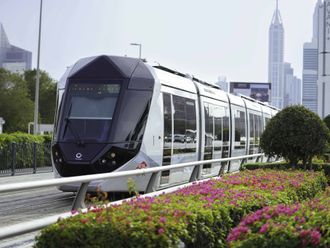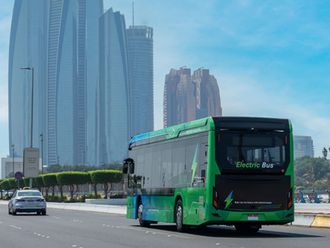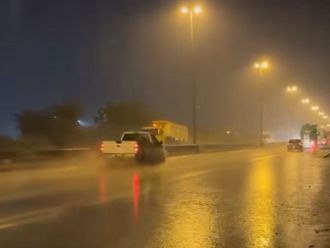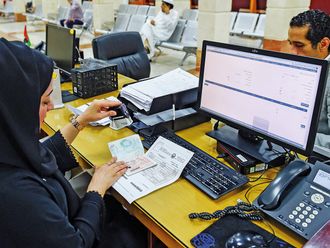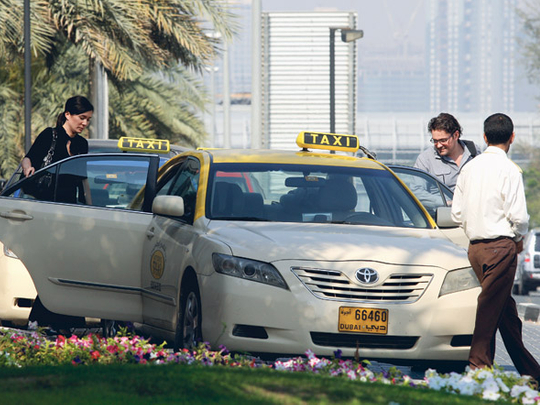
Dubai: Cabbies in Dubai can no longer exploit grace speed limits as the Roads and Transport Authority (RTA) introduces a monitoring system forcing taxi drivers to stick to the stated speed limits on roads.
The system is aimed at enhancing road safety since complaints of taxi drivers exceeding speed limits are commonly received by RTA.
“Among the complaints that we commonly receive are about taxi drivers’ bad behaviour, including speeding. We are trying to control the cases of speeding and improve safety on roads,” said Yousuf Al Ali, CEO of RTA’s Public Transport Agency.
The system termed Aman, which means safety in Arabic, implements a gradual process of warning and penalty for taxi drivers. The system will monitor speeds of taxis all the time and employ both GPS and pulse technology that will make note of speed limits on every street of the city.
Though most taxis in Dubai are equipped with speed controllers that limit their speed to 120km/h, the new system will help to improve safety on internal roads where the speed limit is lower.
The system makes sure that if, for example, the speed limit is 60 on a certain road, the taxi does not go beyond 60. The moment a driver exceeds the limit, the system will alert the driver and, if there is no response there will be an immediate penalty,” said Al Ali.
Response time
The driver will receive two warnings in case of speeding prior to the penalties and the driver will have enough time to respond.
“The first warning will be in the form of a message appearing on the taxi meter and the driver will have 60 seconds to get back to the allowed limit. If he continues to speed, he will get a sound alert which will say ‘you are speeding.’ The alert will play three times and if he still doesn’t reduce the speed a Dh200 fine will be issued,” said Adel Shakeri, director of the Transportation System Department at RTA’s Public Transport Agency.
The second violation will attract a fine of Dh400, and if the violation is repeated again the driver will be referred to the RTA’s disciplinary committee, which could initiate action ranging from blocking the driver’s ID for seven days to ordering a training session or even termination.
“The Aman system is designed to provide complete control over the speed of taxis and operates in a flexible escalating mechanism so that the driver has time to respond,” Shakeri added.
The system meticulously identifies the location where the speed violation occurred and recognises the periods of violations.
Reacting to the new mechanism, several taxi drivers said the system will put additional pressure on them in terms of fulfilling their daily targets in time.
“The authorities keep introducing new features and it is difficult for us to keep complying with every new thing. I don’t understand why taxi drivers are singled out for road safety. It doesn’t make any sense if other drivers continue to enjoy the grace speed limit while we are restricted,” said a cabbie, who did not wish to be named.
As many as 18,000 taxi drivers work in two shifts of 12 hours each, driving 8,007 taxis owned by Dubai Taxi Corporation and five other franchises.


